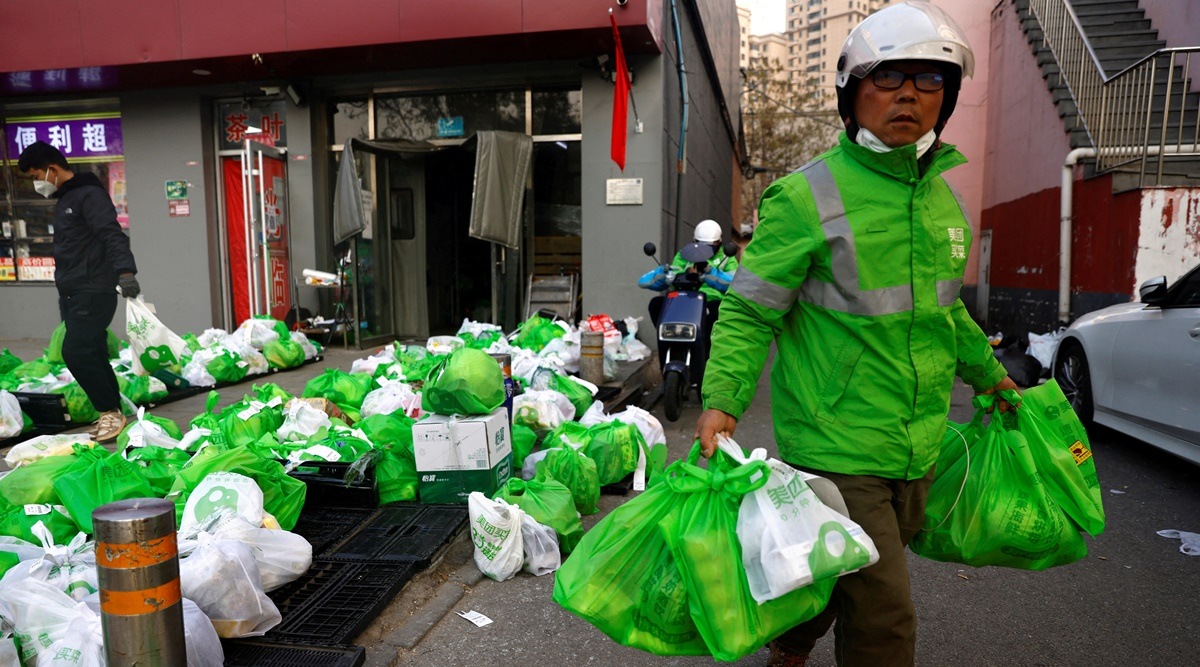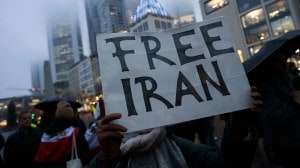Stay updated with the latest - Click here to follow us on Instagram
Panic-buying in Beijing as city adds new quarantine centres
Most residents of the city have already been advised not to leave their compounds, some of which are being fenced in.
 A delivery worker picks up goods at a logistics station of online grocery platform by Meituan, following the coronavirus disease (COVID-19) outbreak in Beijing, China November 23, 2022. (REUTERS/File)
A delivery worker picks up goods at a logistics station of online grocery platform by Meituan, following the coronavirus disease (COVID-19) outbreak in Beijing, China November 23, 2022. (REUTERS/File)Residents of China’s capital were emptying supermarket shelves and overwhelming delivery apps Friday as the city government ordered accelerated construction of COVID-19 quarantine centres and field hospitals.
Uncertainty and scattered, unconfirmed reports of a lockdown on at least some Beijing districts have fuelled the demand for food and other supplies, something not seen in the city for months.
Daily cases of COVID-19 across the country are hitting records, with 32,695 reported Friday. Of those, 1,860 were in Beijing, the majority of them asymptomatic.
Improvised quarantine centres and field hospitals hastily thrown up in gymnasiums, exhibition centres and other large, open indoor spaces have become notorious for overcrowding, poor sanitation, scarce food supplies and lights that stay on 24 hours.
Most residents of the city have already been advised not to leave their compounds, some of which are being fenced in. At entrances, workers clad head to toe in white hazmat suits stop unauthorised people and make sure residents scan their cellphone health apps to gain entry.
Some of Beijing’s grocery delivery services have reached capacity.
An increase in demand combined with a worker shortage left some customers unable to book same-day slots Friday for food and supplies from popular online grocery services such as Alibaba’s Freshippo and Meituan Maicai.
Online, some Chinese users said there were delivery workers whose compounds were locked down, contributing to the worker shortage. The Associated Press was unable to independently confirm those reports.
Alibaba did not immediately comment.
At a Friday afternoon news conference, city government spokesperson Xu Hejian said it was necessary “to strengthen the management and service guarantee” of quarantine centres and field hospitals where those who test positive for COVID-19 or have been in close contact with an infected person are transported to by police.
Authorities must “further accelerate” their construction and “coordinate the allocation of space, facilities, materials, personnel and other resources,” Xu said.
Officials have in recent days repeatedly insisted that China must stick with its hard-line “zero-COVID” policy that mandates lockdowns, mass testing and quarantines for anyone suspected of having come into contact with the virus.
The policy is seen as taking a harsh toll on the economy and upending lives in many Chinese cities, leading the World Health Organisation and others to call for a change in tack — calls the ruling Communist Party has angrily rejected.
- 01
- 02
- 03
- 04
- 05































